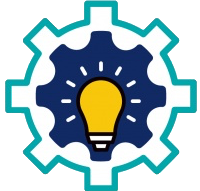Artificial Lift Systems– ALS
Details :
This course blends lecture, hands-on exercises, and seminar
teaching styles to enhance learning. Participants work with software that allows
them to design and analyse artificial lift
designs, which should improve performance and result
in higher production rates and/or
reduced operating costs. Participants learn how to
design and troubleshoot rod pumping,
continuous gas lift, and electric submersible pump
systems. Other methods such as PCP,
plunger lift, jet pump, hydraulic pump, and intermittent
gas lift will also be addressed.
Participants gain experience in solving problems by
hand and also by using advanced computer programs. Troubleshooting is an
important part of artificial lift operations and several typical surveillance
problems are solved. The class includes pictures and videos of the most important
equipment components being applied. With increased prices, more emphasis
is placed on techniques to maximize production.
New developments at various stages of application are
also covered. Effect of horizontal wells and deviation for all methods are discussed.
• Use principles and content mentioned below to focus on
maximizing oil production with
artificial
lift systems.
• Make basic PVT properties and inflow performance
calculations related to artificial lift.
• Understand and apply multiphase tubing and pipe flow
principles.
• Select the appropriate artificial lift system.
• Compare systems to determine which one is most
economically feasible.
• Specify components and auxiliary equipment needed
for each system.
• Know what best practices are available to extend the
life of equipment and installed lift systems.
• Apply basic design and analysis concepts.
• Design system features that allow for gassy production,
production with solids, viscous
production, and for other harsh environments.
Engineers, technicians, field supervisors, and others who
select, design, install, evaluate, or
operate artificial lift systems.
Ø Overview of artificial lift technology
Ø Criteria for selection of artificial lift system
Ø Reservoir performance: inflow and outflow relationships
Ø Artificial lift screening
Ø Introduction to rod pumping, gas lift, and ESP systems
Ø Rod-pump design: pumping unit, rods, pump, prime movers, gas
anchor, pump-off controls
Ø Gas lift design: mandrels, valves, injection gas
requirements, temperature, chokes, spacing,
Ø equilibrium curve, continuous flow design
Ø ESP design: pump performance curves, pump intake curves,
typical problems, installation, and troubleshooting
Ø Best practices for installation and maintenance
Ø Economic analysis
Seminar style sections with blended lectures and real
life application
Timing: daily 09:00 – 14:00


